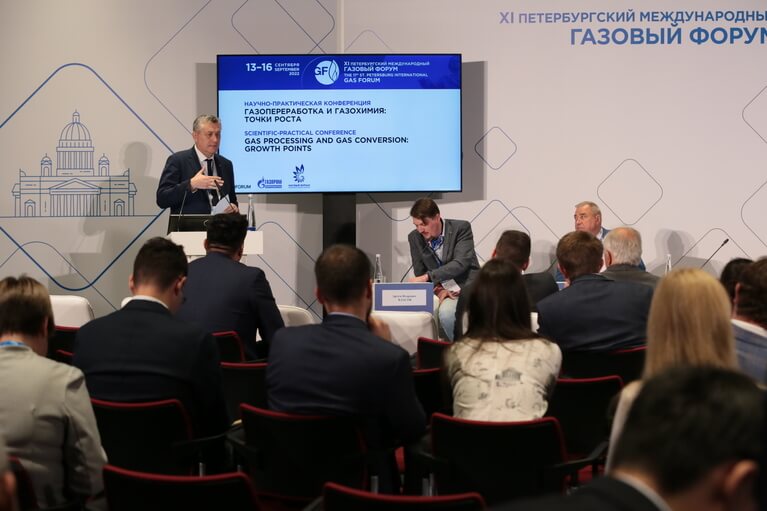
At the forum, the research-to-practice conference ‘Gas processing and gas conversion: growth points’ took place. Speakers from Gazprom Pererabotka announced that after introduction of gas condensate deethanization units at the sites in the Nadym-Pur-Tazovsky Region the revenue from hydrocarbon feedstock transportation and procession services at the Alternative Scheme facilities reached 14 mlrd Rubles, and thus, the budget of the Yamal-Nenetsk Region received 557 mln Rubles of property taxes more.
The company managed to minimize CO2 emissions and switched to Russian-made software, as well as compressors by Kazancompressmash.
According to Rustem Galiev, Deputy CEO for Prospective Development at Gazprom Pererabotka, today the company has to solve the task of finding an alternative for its key consumable – catalysts for oil refinement supplied by the French company Axens. The company is going to arrange a public bidding to choose top quality catalysts at a low price. Before 2015, Gazprom Pererabotka used Russian-made components, which means the country has the dedicated projects.
At the same time, parallel import can turn out to be more profitable than purchasing from Russian manufacturers. In August, one of the local suppliers offered the company to buy catalysts at a price of 7 mln Rubles per unit, and in September this price rocketed up to 25 mln Rubles.
Mr. Galiev pointed out that at the moment Russian manufacturers can hardly be a match to the foreign ones in terms of service and customer support.
Those producing fertilizers based on ammonia obtained during methane procession also encountered lack of equipment.
The industry needs its own catalysts, compressors, and financial support from the state to develop successfully – this is what Sergey Suvorkin, Director at Design and Research Institute of Urea (NIIK) thinks.
He also remarked that NIIK is ready to develop equipment for various customers, as the portfolio of the institute comprises 500 inventions. ‘We have to get off the catalyst needle that we’ve been dependent on for so long. We need to resume our own development works. Today, manufacturers are considering China- and Iran-based suppliers, but substituting European imported goods with the Chinese ones is not the import substitution that we need. China used the situation to its benefit and hiked its prices,’ Sergey Suvorkin resumed.
In the end of the conference the participants discussed the challenges and prospective trends of the low capacity gas conversion, as well as advances made by the Russian companies in development of synthesizing equipment for methanol and other hydrocarbon-based product.